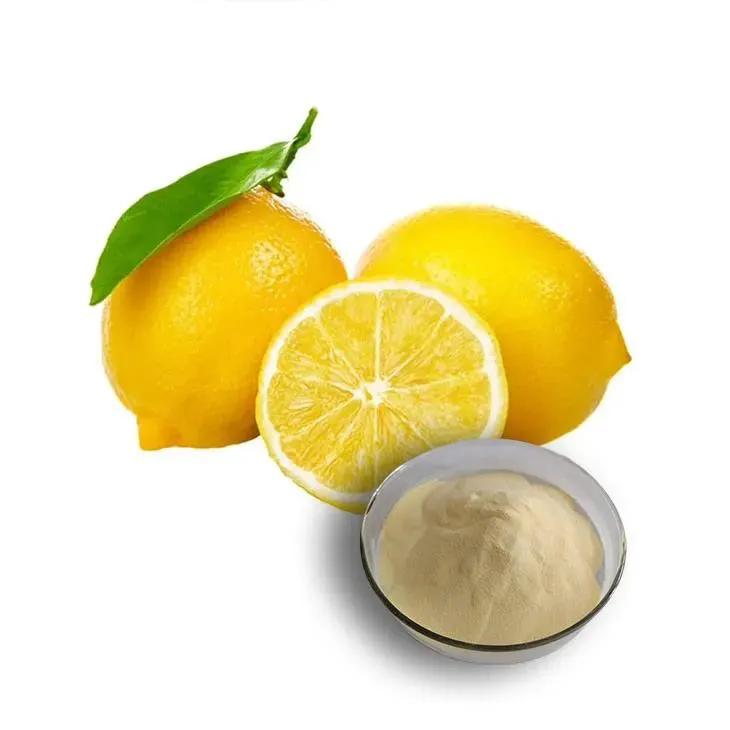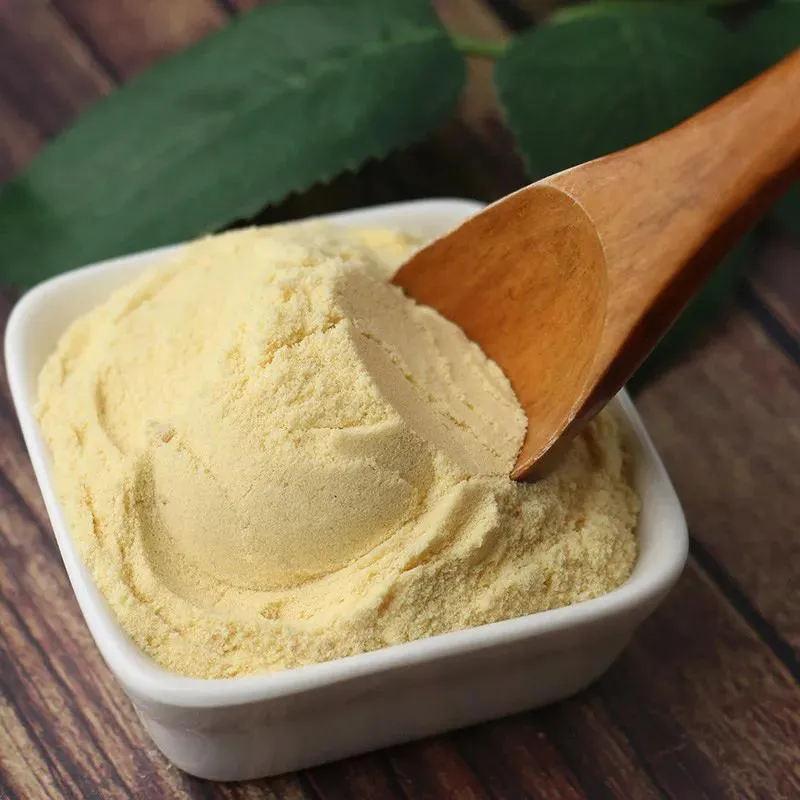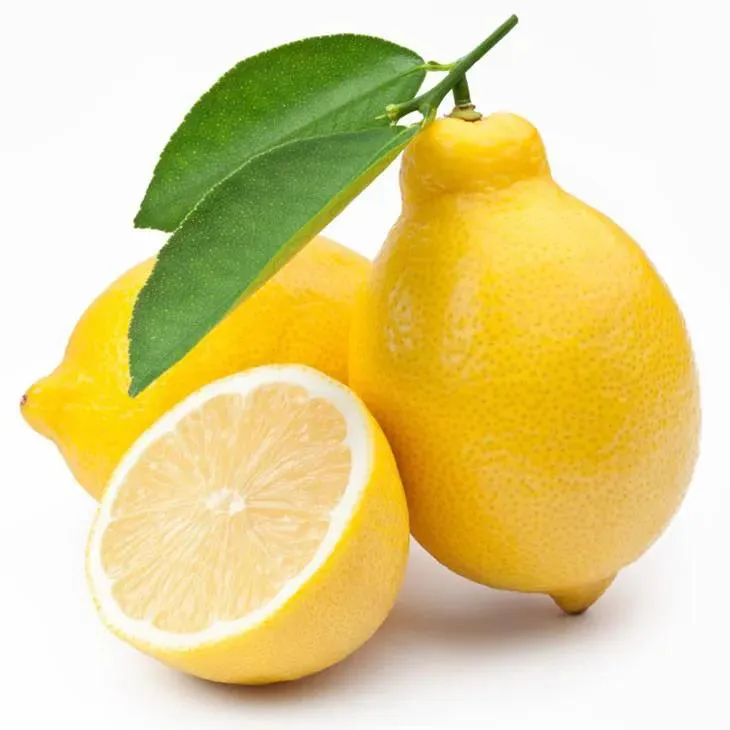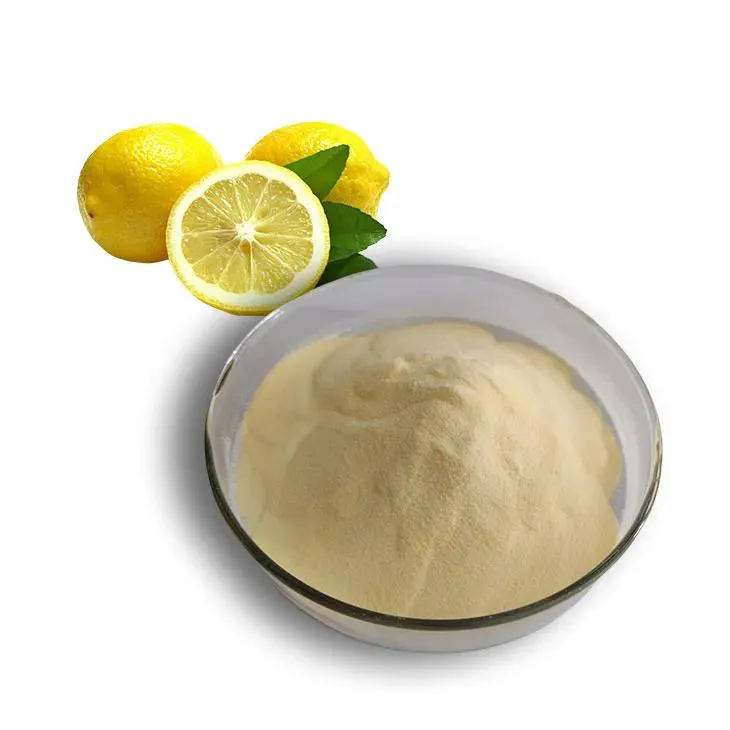- 0086-571-85302990
- sales@greenskybio.com
Lemon Juice Powder: Their Production Methods and Reasons for Their Popularity.
2024-12-09

1. Introduction
Lemonade powder has become a popular product in recent years. It offers a convenient way to enjoy the refreshing taste of lemonade without the need for fresh lemons or the hassle of making it from scratch every time. This article will explore the production methods of Lemon Juice Powder and the reasons behind its growing popularity.

2. Production Methods
2.1. Raw Material Selection
The first step in the production of Lemon Juice Powder is the careful selection of raw materials. High - quality lemons are chosen for their rich flavor, acidity, and nutritional content. Only ripe lemons are selected as they contain the optimal balance of sugars, acids, and other flavor - enhancing compounds. These lemons are sourced from reliable suppliers, often from regions known for their lemon production, such as California in the United States or Sicily in Italy.
2.2. Extraction of Lemon Juice
Once the lemons are selected, the next step is to extract the juice. This can be done using various methods. One common method is mechanical extraction, where the lemons are squeezed using specialized machinery. This ensures a high yield of juice while minimizing the extraction of unwanted substances such as seeds and pulp. Another method is enzymatic extraction, which involves using enzymes to break down the cell walls of the lemon pulp, making it easier to extract the juice. This method can be more efficient in terms of juice extraction but requires careful control of enzyme activity to avoid over - degradation of the juice.
2.3. Concentration of Lemon Juice
After extraction, the lemon juice is typically concentrated to reduce its water content. This is done through processes such as evaporation or freeze - concentration. Evaporation involves heating the juice at a controlled temperature to drive off the water vapor. This method is cost - effective but may cause some loss of volatile flavor compounds. Freeze - concentration, on the other hand, involves freezing the juice and then removing the ice crystals, which are essentially pure water. This method is more gentle on the flavor compounds but is more expensive and energy - intensive.
2.4. Drying of Concentrated Lemon Juice
The concentrated lemon juice is then dried to form a powder. There are several drying methods available, including spray drying and freeze - drying. Spray drying is a commonly used method in the food industry. In this process, the concentrated juice is atomized into a fine mist and sprayed into a hot air chamber. The hot air quickly evaporates the remaining water, leaving behind a fine powder. This method is fast and efficient but may result in some heat - induced changes to the flavor and nutritional properties of the powder. Freeze - drying, also known as lyophilization, involves freezing the concentrated juice and then subjecting it to a vacuum. Under the vacuum, the ice crystals in the frozen juice sublime directly from the solid to the gas phase, leaving behind a dry powder. This method is more expensive but can better preserve the original flavor, aroma, and nutritional content of the lemon juice.
2.5. Packaging
Once the Lemon Juice Powder is dried, it is packaged to protect it from moisture, air, and light, which can degrade its quality over time. Packaging materials such as foil - lined pouches or sealed plastic containers are commonly used. These packages are often designed with features such as resealable zippers to maintain freshness after opening.

3. Reasons for Popularity
3.1. Versatility
One of the main reasons for the popularity of lemon juice powder is its versatility. It can be used in a variety of ways to create different types of lemon - flavored products.
- Drinks: Lemon juice powder can be easily dissolved in water to make a refreshing lemonade. It can also be added to other beverages such as iced tea, cocktails, or smoothies to add a tangy lemon flavor. In hot summers, a cold glass of lemonade made from lemon juice powder is a quick and easy way to quench thirst. In cooler weather, a warm lemonade can be made by dissolving the powder in warm water, providing a soothing and comforting drink.
- Baking and Cooking: In the kitchen, lemon juice powder can be used as a substitute for fresh lemon juice in baking recipes. It can add a bright, citrusy flavor to cakes, cookies, muffins, and pies. It can also be used in cooking to season fish, chicken, or vegetables, enhancing their flavor with a touch of lemon.
- Desserts: Lemon juice powder is a great addition to desserts. It can be used to make lemon sorbet, lemon curd, or lemon - flavored frosting for cakes and cupcakes.
3.2. Cost - Effectiveness
Compared to buying pre - made lemonade regularly, lemon juice powder is a cost - effective option. A single packet or container of lemon juice powder can make multiple servings of lemonade, depending on the desired strength of the drink. Buying fresh lemons every time to make lemonade can be expensive, especially if lemons are not in season or are difficult to source. Additionally, lemon juice powder has a long shelf life, which means that it can be stored for extended periods without spoiling. This reduces waste and further adds to its cost - effectiveness.
3.3. Long Shelf Life
The long shelf life of lemon juice powder is another appealing factor. Due to its low moisture content and the protective packaging, lemon juice powder can be stored for months or even years without losing its flavor or quality. This is beneficial for both households and businesses.
- Households: For households, having a long - lasting supply of lemon juice powder means that they can always have the option to make lemonade or use it in cooking and baking, regardless of the season or availability of fresh lemons. It is also convenient for those who do not consume lemonade frequently but still want to have it on hand when they do.
- Businesses: In the food and beverage industry, the long shelf life of lemon juice powder allows for easier inventory management. It can be stored in bulk and used as needed, reducing the risk of spoilage and waste. This is especially important for businesses that use lemonade or lemon - flavored products in their operations, such as cafes, restaurants, and food manufacturers.

4. Conclusion
In conclusion, lemon juice powder is a product that has gained popularity due to its unique production methods and desirable properties. The production process involves careful selection of raw materials, extraction, concentration, drying, and packaging to create a high - quality powder that retains the essence of lemons. Its versatility, cost - effectiveness, and long shelf life make it an attractive option for consumers and businesses alike. As the demand for convenient and long - lasting food products continues to grow, it is likely that the popularity of lemon juice powder will further increase in the future.

FAQ:
Q1: How is lemon juice powder produced?
The production of lemon juice powder involves processes to preserve the essence of lemons and make it shelf - stable. It may incorporate techniques to retain the natural acidity and flavor of lemons, but specific details can vary among different manufacturers.
Q2: Why is lemon juice powder so popular?
There are several reasons for its popularity. Firstly, it is very versatile. It can be used to make cold lemonade drinks in hot summers or warm lemonade in cooler weather. Secondly, it is cost - effective compared to regularly buying pre - made lemonade. Also, it has a long shelf life, which is appealing for both households and businesses.
Q3: Can lemon juice powder be used in cooking?
Yes, it can be used in cooking. Its natural acidity and lemon flavor can add a zesty touch to various dishes, such as marinades for meats, dressings for salads, or in baking to add a lemony flavor.
Q4: How long does the shelf life of lemon juice powder typically last?
The shelf life can vary depending on factors such as the manufacturing process and storage conditions. However, generally, it has a relatively long shelf life, often lasting for months to even a year or more when stored properly in a cool, dry place.
Q5: Is lemon juice powder as healthy as fresh lemon juice?
Lemon juice powder retains many of the beneficial properties of fresh lemon juice, such as vitamin C and natural acidity. However, some processing may cause a slight loss of certain nutrients. But overall, it can still be a good source of flavor and some health benefits.
Related literature
- The Production and Quality Control of Fruit Juice Powders"
- "The Popularity of Powdered Beverages: A Market Analysis"
- "Lemon - Based Products: Production and Consumer Preferences"
- ▶ Hesperidin
- ▶ Citrus Bioflavonoids
- ▶ Plant Extract
- ▶ lycopene
- ▶ Diosmin
- ▶ Grape seed extract
- ▶ Sea buckthorn Juice Powder
- ▶ Fruit Juice Powder
- ▶ Hops Extract
- ▶ Artichoke Extract
- ▶ Mushroom extract
- ▶ Astaxanthin
- ▶ Green Tea Extract
- ▶ Curcumin
- ▶ Horse Chestnut Extract
- ▶ Other Product
- ▶ Boswellia Serrata Extract
- ▶ Resveratrol
- ▶ Marigold Extract
- ▶ Grape Leaf Extract
- ▶ New Product
- ▶ Aminolevulinic acid
- ▶ Cranberry Extract
- ▶ Red Yeast Rice
- ▶ Red Wine Extract
-
Oat Straw Extract Powder
2024-12-09
-
Alfalfa Meal
2024-12-09
-
Kidney Bean Extract
2024-12-09
-
Cactus Extract
2024-12-09
-
Honeysuckle Pollen
2024-12-09
-
Rose Hip Extract
2024-12-09
-
Uridine-5'-monophosphate Disodium salt
2024-12-09
-
Feverfew Extract
2024-12-09
-
Mulberry Extract
2024-12-09
-
Sugarcane Extract
2024-12-09





















